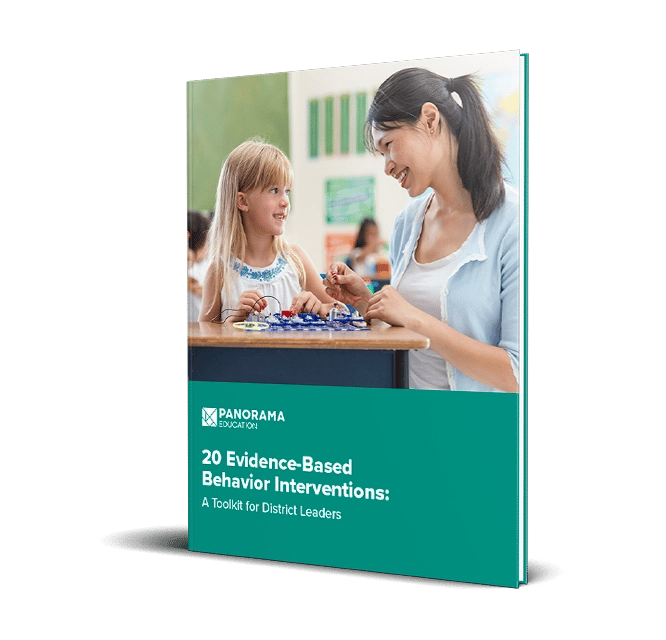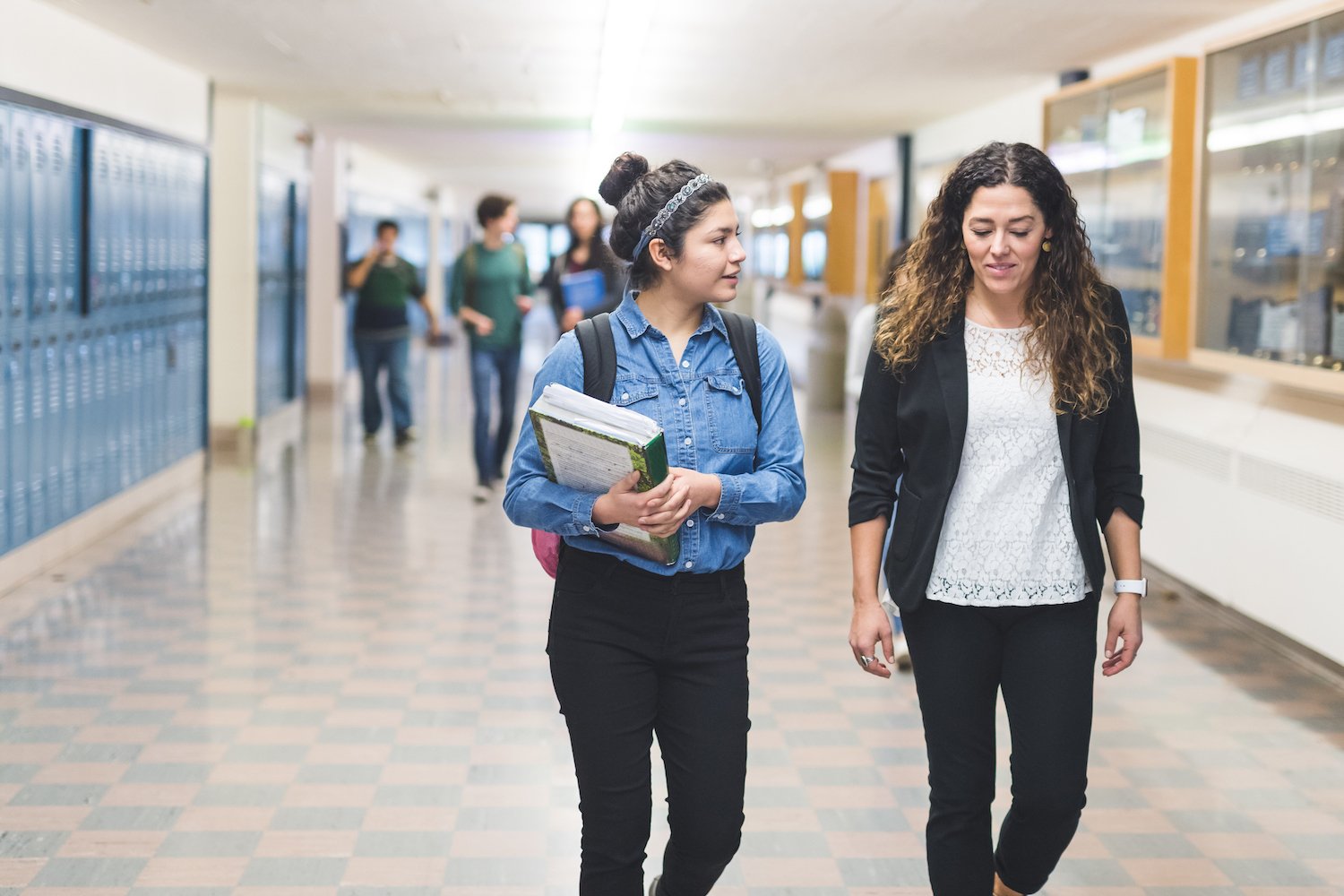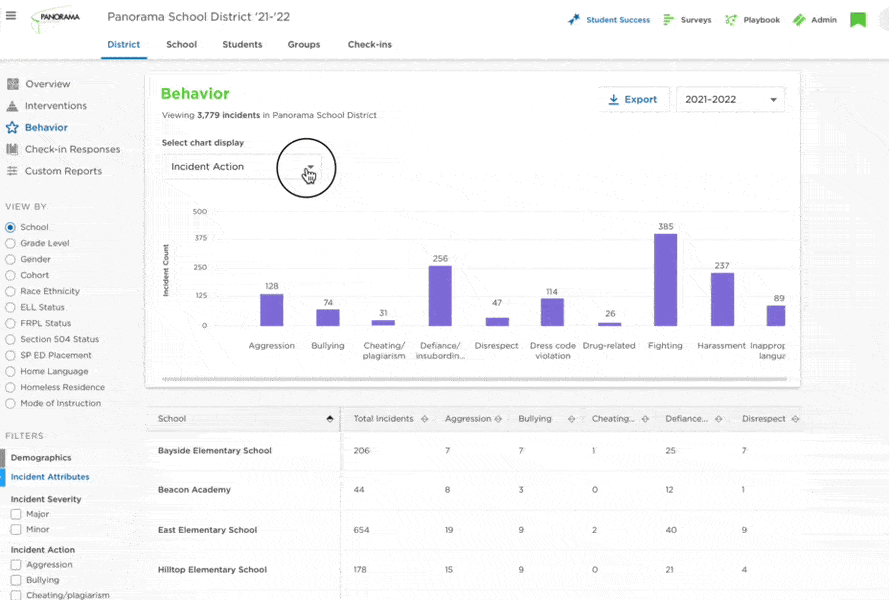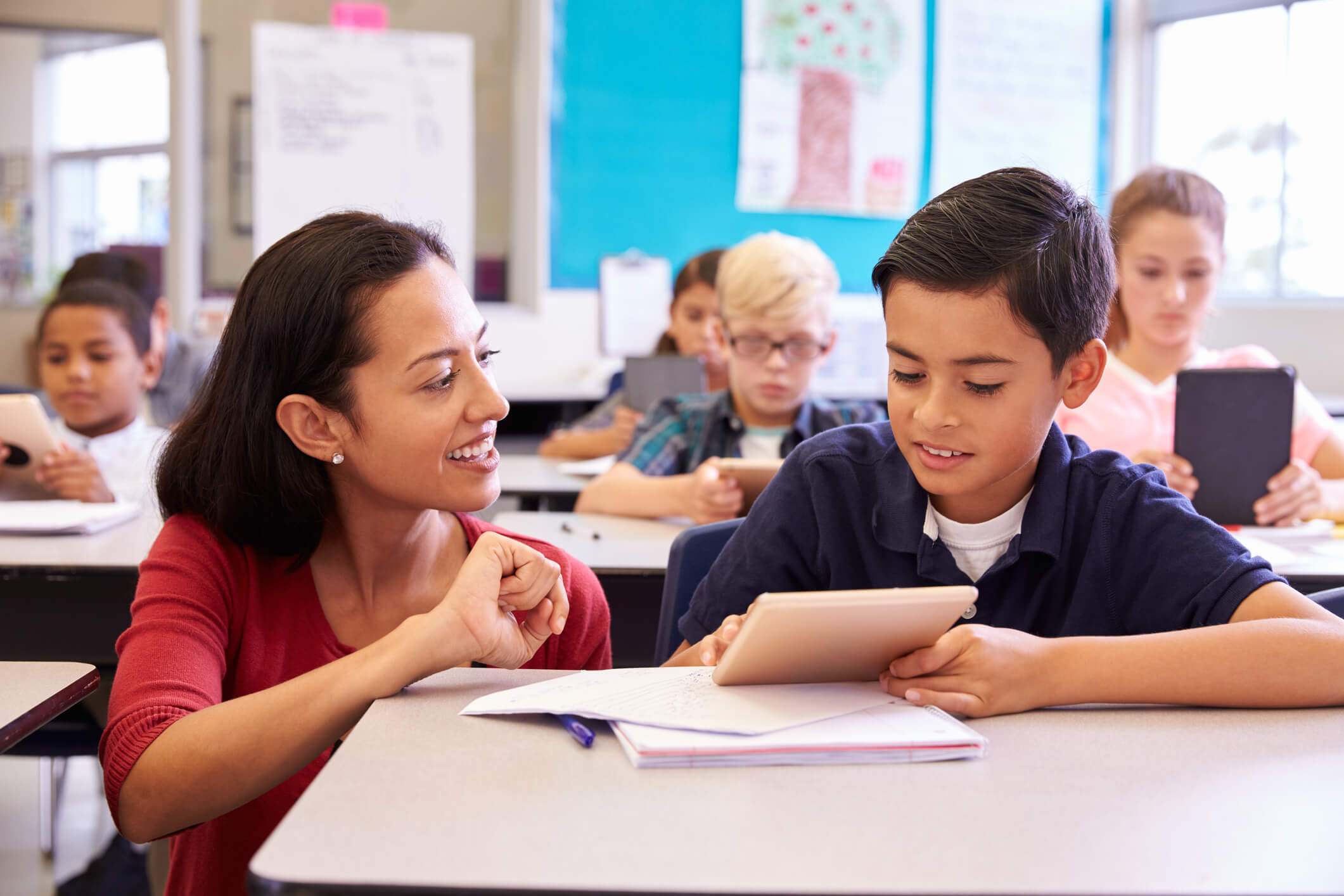In this Intervention Brief, we explore 2x10 Relationship Building, an intervention that empowers educators to build authentic relationships with students and increase their sense of belonging. You can find the 2x10 Relationship Building strategy in the intervention library of Student Success, Panorama's MTSS intervention management platform for school districts.
Table of Contents
2x10 Relationship Building Intervention Overview
Who Does the 2x10 Strategy Work For?
How to Implement the 2x10 Strategy
Tips for Effective 2x10 Strategy Implementation
Additional Resources on the 2x10 Strategy and Other Behavior Interventions
2x10 Relationship Building Intervention Overview
2x10 Relationship Building—originally coined the "two-minute intervention" by researcher Raymond Wlodkowski and popularized in Allen Mendler's Connecting with Students—is a Tier 2 intervention that helps build teacher-student relationships, reinforce positive behaviors, and convey genuine support to an individual who might be typecast as a "challenging student."
At its core, the 2x10 strategy is about consistently building relationships with students. Educators (or school leaders) select a particular student and set a goal to engage in a 2-minute conversation with that student for 10 consecutive school days. These conversations might happen at the beginning or end of a class period.
Research shows that implementing the 2x10 intervention can lead to significant improvements in individual student behavior and the broader classroom climate.
Who Does the 2x10 Strategy Work For?
The 2x10 Relationship Building intervention works best for students who are having a hard time maintaining positive relationships in the classroom, exhibiting disruptive behaviors, or are in need of extra emotional support. It provides students with a safe outlet to communicate their feelings, emotions, and needs to a trusted adult. This targeted intervention can be used as a behavior support for individual students in elementary school, middle school, or high school.
Consider the following criteria when identifying students who will benefit from the 2x10 strategy:
- Students who respond positively to adult attention and connection
- Students who are struggling to connect with peers (or adults) in the school community
- Student who struggle with emotion regulation, social awareness, and disruptive behavior

Free Behavior Strategy ToolKit to Help with 2x10
Gain access to 20 evidence-based, age-appropriate interventions for high school students from Panorama's Playbook.
How to Implement the 2x10 Strategy
- Choose one student whom you would like to strengthen your relationship with.
- Select when you are going to approach the student (e.g., at the beginning of a class period).
- Find the student and start a conversation with them. To build a productive relationship with a student, adults will likely have to initiate the connection.
- The focus of these conversations should be:
- Brevity. These conversations should last two minutes or under.
- Student Voice. Invite them to share something non-academic with you about their day or life. Here are some great get-to-know-you question prompts.
- Honesty. Model transparency and authenticity by sharing something personal/non-academic with the student.
If you use Panorama: You can select the "2x10 relationship building" strategy when creating an intervention plan for a student. Monitor the student's progress over time by logging notes. Everything will be saved to the student's profile and visible to other educators with access to Panorama.
"After implementing 2x10 relationship building in response to Panorama survey data, we had an increase of over 6 percent of students who felt a favorable sense of belonging and connection to adults. That's about 75 to 80 kids. Those students also improved their attendance, academics, and overall sense of well-being."
–Luke Rasmussen, Executive Director of Secondary Education (Read the full story)
Tips for Effective 2x10 Strategy Implementation
- Keep the content of the conversation focused on the student's personal interests, not their schoolwork or behavior. Use an interest inventory to ask questions, or use context clues (e.g., what the student is wearing or likes to talk about in class) to help drive the conversations. Find out what their favorite food is or what their hobbies are. The goal is to get to know the child outside of school in an authentic manner.
- Consistency is key. Even if the conversations are shorter than ten minutes, they can be beneficial if they occur every school day. Holding a 30-second conversation for 10 days in a row with a student conveys more care than having just one 30-minute conversation.
- Ask open-ended questions, and don't be afraid to probe if students start to open up.
- Be a persistent, positive role model.
- Keep the momentum going after the 10 days and continue to engage the student on a regular basis.
|
Frequently Asked Questions: 1. Can the 2x10 Relationship Building intervention be used exclusively for students with behavioral issues, or is it applicable to all students? While the 2x10 strategy is effective for students experiencing behavioral challenges, it's not limited to them. This intervention can benefit all students by fostering authentic connections and providing additional support, regardless of their behavior. 2. Is the 2x10 Relationship Building intervention time-consuming for educators, especially considering their other responsibilities? The 2x10 strategy is designed to be brief and manageable for educators. Spending just two minutes per day for ten consecutive days can have a significant impact on building relationships with students. Consistency is key, but the intervention doesn't require extensive time commitments. 3. How can educators ensure the effectiveness of the 2x10 Relationship Building intervention in virtual learning environments? In virtual settings, educators can adapt the 2x10 strategy by scheduling brief one-on-one video calls with students or incorporating personalized check-ins during virtual classroom sessions. Utilizing digital platforms for communication and engagement can help maintain the authenticity and effectiveness of the intervention. 5. Can the 2x10 Relationship Building intervention be integrated with existing school-wide initiatives or life skills programs? Yes, the 2x10 strategy can complement existing programs and initiatives by providing targeted support to individual students. Educators can incorporate elements of the 2x10 intervention into broader life skills frameworks, fostering a more inclusive and supportive school environment for all students. |







.webp?width=666&height=640&name=20_Evidence_Based_High_School_Interventions%20(1).webp)